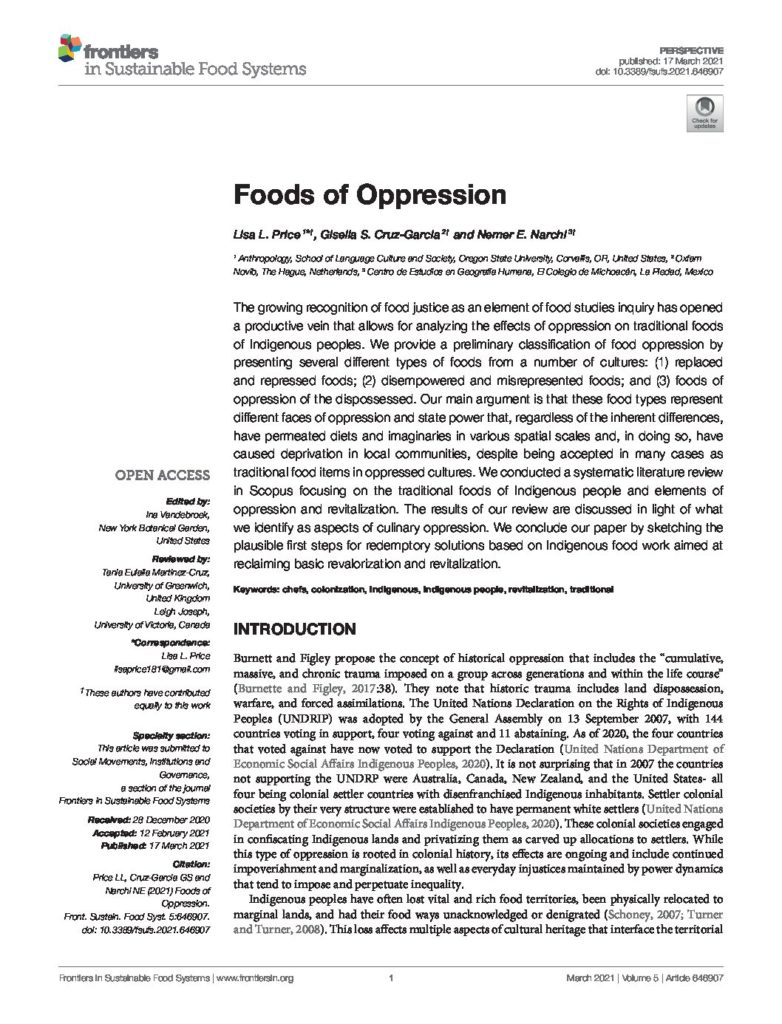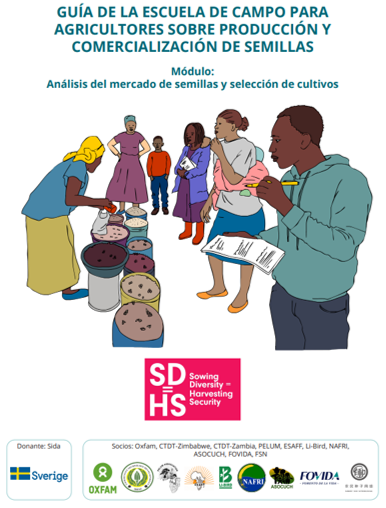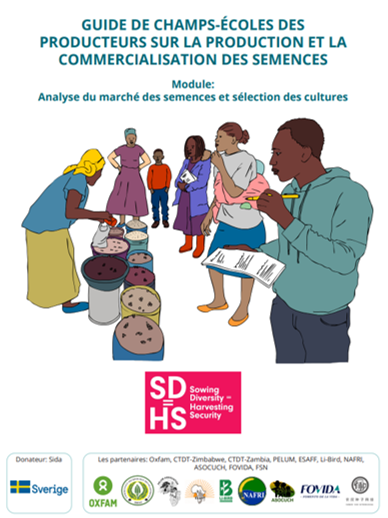The growing recognition of food justice as an element of food studies inquiry has opened a productive vein that allows for analyzing the effects of oppression on traditional foods of Indigenous peoples. Writing together with Lisa Price and Nemer Narchi in the open-access “Frontiers in Sustainable Food Systems”, SD=HS’s Gisella Cruz García provides a preliminary classification of “food oppression” in this article, presenting several different types of foods from a number of cultures: (1) replaced and repressed foods; (2) disempowered and misrepresented foods; and (3) foods of oppression of the dispossessed.
Their main argument is that these food types represent different faces of oppression and state power that, regardless of the inherent differences, have permeated diets and imaginaries in various spatial scales and, in doing so, have caused deprivation in local communities, despite being accepted in many cases as traditional food items in oppressed cultures.
They conducted a systematic literature review in Scopus focusing on the traditional foods of Indigenous people and elements of oppression and revitalization. The results of our review are discussed in light of what we identify as aspects of culinary oppression. Their conclusions sketch the plausible first steps for redemptory solutions based on Indigenous food work aimed at reclaiming basic revalorization and revitalization.










